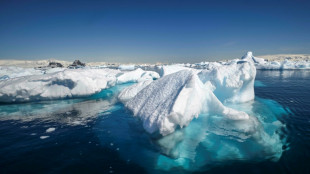

Last week the hottest worldwide on record: UN
The beginning of July was the hottest week on record for the planet, according to early findings Monday from the World Meteorological Organization, after a series of scorching days saw global temperature records tumble.
"The world just had the hottest week on record, according to preliminary data," the WMO said in a statement, after climate change and the early stages of the El Nino weather pattern drove the warmest June on record.
It's the latest in a series of records halfway through a year that has already seen a drought in Spain and fierce heat waves in China as well the United States.
Temperatures are breaking records both on land and in the oceans, with "potentially devastating impacts on ecosystems and the environment", the WMO said.
"We are in uncharted territory and we can expect more records to fall as El Nino develops further and these impacts will extend into 2024," said Christopher Hewitt, WMO Director of Climate Services.
"This is worrying news for the planet."
The WMO said it had looked at various datasets from partners around the world.
Europe's climate monitoring service Copernicus told AFP its data also showed last week was likely to be the hottest since records began in 1940.
Copernicus said that its data suggests Thursday was likely to have seen the highest global average temperature, after several record-breaking days earlier in the week.
Last week, UN Secretary General Antonio Guterres said "the situation we are witnessing now is the demonstration that climate change is out of control".
As well as withering crops, melting glaciers and raising the risk of wildfires, higher-than-normal temperatures also cause health problems ranging from heatstroke and dehydration to cardiovascular stress.
New research published Monday found that more than 61,000 people died due to the heat during Europe's record-breaking summer last year.
The majority of deaths were of people over the age of 80 and around 63 percent of those who died due to the heat were women, according to the research published in the journal Nature Medicine.
The world has warmed an average of nearly 1.2 C since the mid-1800s, unleashing extreme weather including more intense heatwaves, more severe droughts in some areas and storms made fiercer by rising seas.
This year sea surface temperatures have hit unprecedented levels this year, while Antarctic sea ice has shrunk to a record low.
El Nino is a naturally occurring pattern that drives increased heat worldwide, as well as drought in some parts of the world and heavy rains elsewhere.
Michael Sparrow, Chief of World Climate Research Programme at the WMO, cautioned that more was likely around the corner.
"El Nino hasn't really got going yet," he said.
P.Ries--LiLuX



